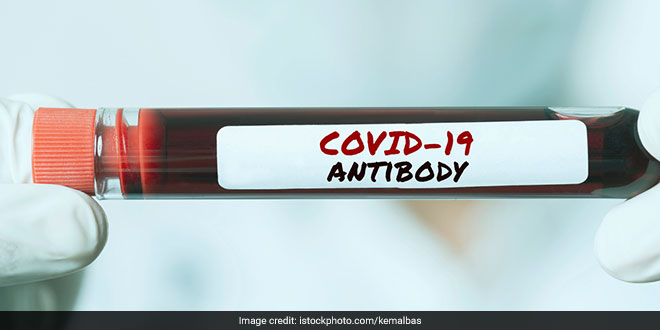Highlights
- All 11 districts of Delhi were covered in the latest sero-survey
- A total of 15,000 samples were collected during the sero-survey in Delhi
- 50% of the samples were collected from the age-group of 18-49 years
New Delhi: A total of 29.1 per cent people in the national capital have developed anti-bodies against COVID-19, according to the second serological survey conducted earlier this month. “The second serological survey which was conducted between 1-7 August shows that 29.1 per cent of people have developed antibodies against COVID-19. A total of 15,000 samples were collected during the survey,” said Delhi Health Minister Satyendar Jain.
According to the Health Minister, if Delhi’s population is considered to be 2 crore, then about 58 lakh people have developed antibodies and they have recovered. The North East district has shown 29 per cent, South 27 per cent while South East has shown 33 per cent prevalence of anti-bodies in the survey.
Also Read: National Capital Delhi To Have Monthly Sero-surveys; Here Are The Findings Of Latest Sero-survey
A release in this regard said the Government of National Capital Territory of Delhi had commissioned a follow-up sero survey for evaluation of the prevalence and trends of the SARS-CoV-2 infection in the general population of Delhi.
The sero survey applied a repeated cross-sectional study design, and the first round was conducted in the first week of August 2020. The other two rounds are scheduled in the first weeks of September and October 2020, the release said.
Also Read: Delhi Government Plans To Start ‘Oxygen Jaanch Kendra’ To Combat COVID-19, CM Holds Meeting
The survey was planned by the Government of NCT Delhi with technical support of Maulana Azad Medical College (MAMC), New Delhi and the sample size for the survey was calculated as 15000 (calculated using expected prevalence of the SARS-CoV-2-infection as 23.48 per cent based on NCDC Delhi sero survey, 95 per cent confidence levels, 1 per cent absolute precision for increased accuracy in the first round).
The sero survey has been implemented across all the 11 districts with the number of participants selected as per the population allocation to the size sampling method both at the district and ward level, the release informed.
Also Read: Some Hospitals In Delhi Seeing Re-emergence Of COVID-19 In Recovered Patients
As per the release, the sample was stratified at the health facility level as per age strata of <18, 18-49, >50 years in the proportion of 25 per cent, 50 per cent and 25 per cent respectively.
It has been taken care that any individual who was part of the previous round of the sero survey is not been included in the current or forthcoming round of the sero survey, the release said.
(Except for the headline, this story has not been edited by NDTV staff and is published from a syndicated feed.)
NDTV – Dettol Banega Swasth India campaign is an extension of the five-year-old Banega Swachh India initiative helmed by Campaign Ambassador Amitabh Bachchan. It aims to spread awareness about critical health issues facing the country. In wake of the current COVID-19 pandemic, the need for WASH (Water, Sanitation and Hygiene) is reaffirmed as handwashing is one of the ways to prevent Coronavirus infection and other diseases. The campaign highlights the importance of nutrition and healthcare for women and children to prevent maternal and child mortality, fight malnutrition, stunting, wasting, anaemia and disease prevention through vaccines. Importance of programmes like Public Distribution System (PDS), Mid-day Meal Scheme, POSHAN Abhiyan and the role of Aganwadis and ASHA workers are also covered. Only a Swachh or clean India where toilets are used and open defecation free (ODF) status achieved as part of the Swachh Bharat Abhiyan launched by Prime Minister Narendra Modi in 2014, can eradicate diseases like diahorrea and become a Swasth or healthy India. The campaign will continue to cover issues like air pollution, waste management, plastic ban, manual scavenging and sanitation workers and menstrual hygiene.
[corona_data_new]





























